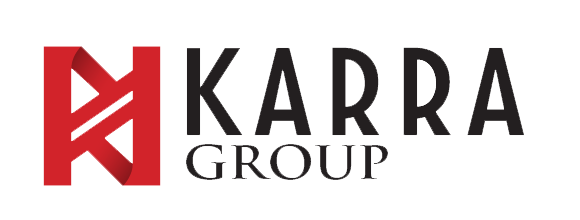- Beyond the Headlines: Essential us news and expert analysis for securing your economic well-being in a dynamic world.
- Understanding the Current Economic Landscape
- The Impact of Geopolitical Events
- The Russia-Ukraine Conflict and Global Energy Markets
- China’s Economic Slowdown and Global Trade
- Middle East Instability and Oil Prices
- Navigating Inflation and Interest Rate Hikes
- The Rise of Digital Transformation
- Artificial Intelligence and Automation
- Cybersecurity Threats and Data Privacy
- The Metaverse and New Business Opportunities
- Strategies for Long-Term Financial Security
Beyond the Headlines: Essential us news and expert analysis for securing your economic well-being in a dynamic world.
In an era defined by rapid change and global interconnectedness, staying informed about us news is more critical than ever. The flow of information is constant, impacting financial markets, geopolitical landscapes, and individual economic well-being. Understanding these events, however, requires more than just headline reading; it demands analysis, context, and a forward-looking perspective. This article aims to provide just that—essential insights and expert analysis to help you navigate the complexities of the modern world and secure your financial future.
The challenges facing individuals and businesses today are multifaceted. Inflation, supply chain disruptions, and shifting political dynamics all play a role in shaping the economic climate. Being aware of these factors and their potential implications is key to making informed decisions. Beyond simply reacting to events, proactively anticipating trends and adapting strategies is paramount to success and stability.
Understanding the Current Economic Landscape
The global economy is currently at a pivotal moment. We’re observing a confluence of factors—including the aftermath of the pandemic, ongoing geopolitical tensions, and aggressive monetary policy tightening—creating volatility and uncertainty. Central banks around the world are grappling with the challenge of controlling inflation without triggering a recession. This delicate balancing act has far-reaching consequences for businesses, investors, and consumers alike. Observing subtleties in economic movement is critical for devising strategies.
| US Inflation Rate | 3.7% | 3.8% | Decreasing |
| Federal Funds Rate | 5.25% – 5.50% | 5.25% – 5.50% | Stable |
| Unemployment Rate | 3.9% | 3.8% | Increasing |
| GDP Growth (Q3 2023) | 4.9% | 2.1% | Increasing |
The Impact of Geopolitical Events
Geopolitical events consistently introduce volatility into the economic equation. Conflicts, political instability, and trade disputes all have ripple effects that extend far beyond the immediate region. Heightened tensions inevitably lead to increased uncertainty, affecting investor sentiment and supply chains. Analyzing these connections and assessing the potential risks is essential for businesses operating in a globalized world. Companies need to proactively identify potential disruptions and develop contingency plans to mitigate their impact.
The Russia-Ukraine Conflict and Global Energy Markets
The ongoing conflict between Russia and Ukraine has had a profound impact on global energy markets. Russia is a major producer of oil and natural gas, and the conflict has disrupted supplies, leading to significant price increases. This, in turn, has fueled inflation and contributed to economic instability. Moreover, the conflict has prompted countries to re-evaluate their energy security strategies and accelerate the transition to renewable energy sources. The long-term implications of these shifts are still unfolding, but they are likely to reshape the global energy landscape for years to come. Businesses involved in the energy sector must adapt to these changes and embrace innovation to remain competitive.
China’s Economic Slowdown and Global Trade
China, the world’s second-largest economy, has been experiencing a slowdown in recent months. This is due to a combination of factors, including a property market crisis, strict COVID-19 lockdowns, and rising geopolitical tensions. A slowdown in China has significant implications for global trade, as China is a major importer of goods and services from around the world. Reduced demand from China could negatively impact export-oriented economies. Businesses that rely heavily on the Chinese market need to diversify their sales channels and reduce their dependence on a single economy.
Middle East Instability and Oil Prices
Recent events in the Middle East have caused concerns about potential disruptions to oil supplies. The region is a major oil-producing area, and any instability could lead to price spikes. This, in turn, could exacerbate inflationary pressures and negatively impact global economic growth. Monitoring the situation in the Middle East closely and assessing the potential risks is vital for businesses and investors. Diversification of energy sources and investment in renewable energy can help to reduce vulnerability to price shocks.
Navigating Inflation and Interest Rate Hikes
Inflation has been a major concern for economies worldwide. Central banks have been raising interest rates to combat inflation, but this can also slow economic growth and increase the risk of a recession. Finding the right balance between controlling inflation and maintaining economic growth is a difficult task. Businesses and investors need to adjust their strategies to navigate this challenging environment. Understanding the drivers of inflation and the potential impact of interest rate hikes is essential for making informed decisions.
- Diversify Investments: Spreading investments across different asset classes can help to reduce risk.
- Focus on Value: Investing in companies with strong fundamentals and a proven track record of profitability.
- Manage Debt: Reducing debt levels can free up cash flow and cushion against rising interest rates.
- Seek Inflation-Protected Assets: Consider investing in assets that tend to perform well during inflationary periods, such as real estate or commodities.
The Rise of Digital Transformation
The accelerating pace of digital transformation presents both opportunities and challenges. Technologies such as artificial intelligence, cloud computing, and blockchain are disrupting industries and creating new business models. Businesses that embrace these technologies and adapt to the changing landscape are more likely to thrive, while those that lag behind risk becoming obsolete. Investing in digital skills and fostering a culture of innovation are critical for success in the digital age. Furthermore, it’s crucial to address the ethical and security implications of these technologies.
Artificial Intelligence and Automation
Artificial intelligence (AI) and automation are transforming the way businesses operate. AI-powered tools can automate repetitive tasks, improve decision-making, and enhance customer experience. The adoption of AI is expected to accelerate in the coming years, creating new opportunities for businesses and workers. However, it’s also important to address the potential job displacement caused by automation and invest in retraining programs to help workers adapt to new roles. Moreover, ethical considerations of AI, such as bias and fairness, must be carefully addressed.
Cybersecurity Threats and Data Privacy
The increasing reliance on digital technologies has also led to a rise in cybersecurity threats. Businesses of all sizes are vulnerable to cyberattacks, which can result in significant financial losses and reputational damage. Protecting sensitive data and ensuring data privacy is crucial. Investing in robust cybersecurity measures and complying with data privacy regulations are essential for maintaining trust and safeguarding business operations. Regular security audits and employee training are also vital components of a comprehensive cybersecurity strategy.
The Metaverse and New Business Opportunities
The metaverse, a virtual world where users can interact with each other and digital objects, is gaining increasing attention. The metaverse presents new opportunities for businesses to engage with customers, create virtual experiences, and generate new revenue streams. However, the metaverse is still in its early stages of development, and its ultimate impact remains uncertain. Businesses that explore the metaverse and experiment with new technologies are more likely to be poised for success in the long run.
Strategies for Long-Term Financial Security
Securing long-term financial well-being requires a proactive and strategic approach. This includes diversification of investments, careful management of debt, and a focus on continuous learning and adaptation. Staying informed about us news and global economic trends is also crucial. Planning for the future and preparing for potential challenges and opportunities is essential for navigating the complexities of the modern world.
- Create a Budget: Track your income and expenses to gain control of your finances.
- Pay Off Debt: Prioritize paying off high-interest debt to reduce financial burdens.
- Invest Early and Often: Start investing as soon as possible and contribute regularly.
- Diversify Your Portfolio: Spread your investments across different asset classes to reduce risk.
- Seek Professional Advice: Consult with a financial advisor to develop a personalized financial plan.

